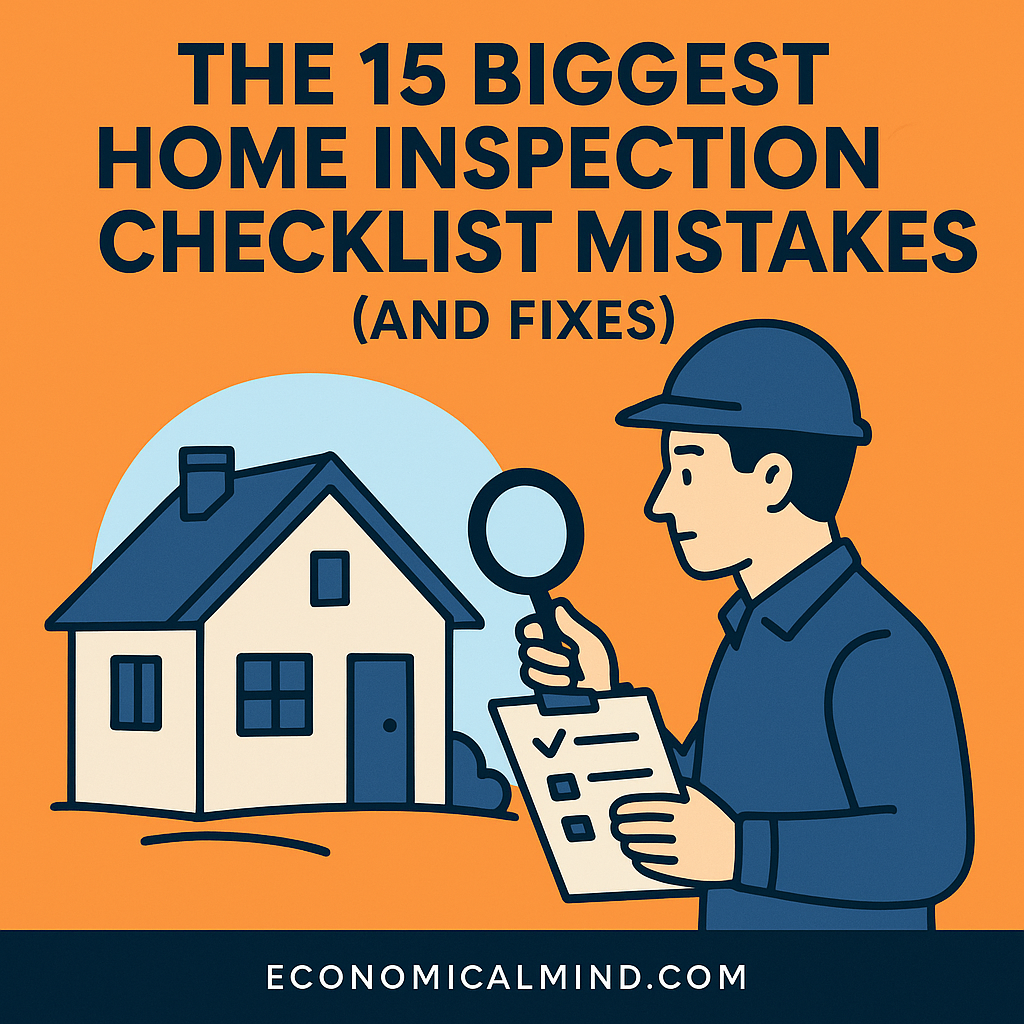
A home inspection can make or break a deal — yet many buyers and sellers overlook crucial details that cost them thousands. Whether you’re buying your first home or selling one, here are the most common home inspection checklist mistakes and how to fix them.
1. Skipping the Inspection Entirely
Some buyers skip inspections to speed up closing or compete in hot markets. That’s a risky move.
Fix: Always get an independent inspection — even if the home looks perfect.
2. Hiring the Cheapest Inspector
Not all inspectors have the same training or tools. Going with the cheapest option often means missing big issues.
Fix: Choose a certified inspector with solid reviews and experience in your area.
3. Not Attending the Inspection
Relying only on the written report means missing real-time explanations and advice.
Fix: Be present during the inspection to see issues firsthand and ask questions.
4. Forgetting to Check the Roof and Foundation
These two areas are the most expensive to repair but are often skipped during a quick walkthrough.
Fix: Ensure your inspector does a thorough review of both — inside and out.
5. Ignoring Drainage and Grading Issues
Poor drainage can lead to basement leaks or foundation damage later.
Fix: Ask the inspector about grading, gutters, and signs of water pooling.
6. Overlooking Attic and Insulation
Hidden moisture or poor insulation can cause future mold problems and high energy bills.
Fix: Make sure the attic is included in the inspection and ask about ventilation quality.
7. Focusing Only on Cosmetic Issues
Peeling paint or old carpet might distract you, but they’re easy fixes.
Fix: Prioritize structural, electrical, and plumbing issues over appearances.
8. Not Testing All Appliances
Buyers often assume appliances work because they “look fine.”
Fix: Have the inspector test every major appliance — stove, dishwasher, HVAC, and washer/dryer.
9. Forgetting About Electrical Safety
Outdated wiring or overloaded circuits are serious fire hazards.
Fix: Request a detailed electrical system review, especially in older homes.
10. Skipping the Plumbing Check
Leaks, corrosion, or poor water pressure can hide behind walls.
Fix: Inspect under sinks and around toilets, and ask for a water heater evaluation.
11. Misreading the Report
Inspection reports can be long and filled with jargon. Many buyers skim or misunderstand them.
Fix: Review the report line by line with your inspector to clarify what’s urgent.
12. Not Asking for Repairs or Credits
Some buyers think they must accept every issue as-is.
Fix: Use the report to negotiate repairs or closing credits with the seller.
13. Failing to Reinspect After Repairs
Even if repairs are promised, some aren’t done correctly or at all.
Fix: Schedule a follow-up inspection before closing.
14. Ignoring Pest or Mold Signs
These problems can cause major health and structural damage if missed.
Fix: Ask your inspector to look for pest activity, mold growth, and wood rot indicators.
15. Forgetting Preventive Maintenance Tips
Buyers often treat inspections as one-time events.
Fix: Use the inspection report as a guide for future maintenance — it’s a homeowner’s manual in disguise.
Key Takeaway
A good home inspection protects your investment — but only if you know what to look for. Avoiding these 15 mistakes can save you from expensive surprises and give you peace of mind before closing.
